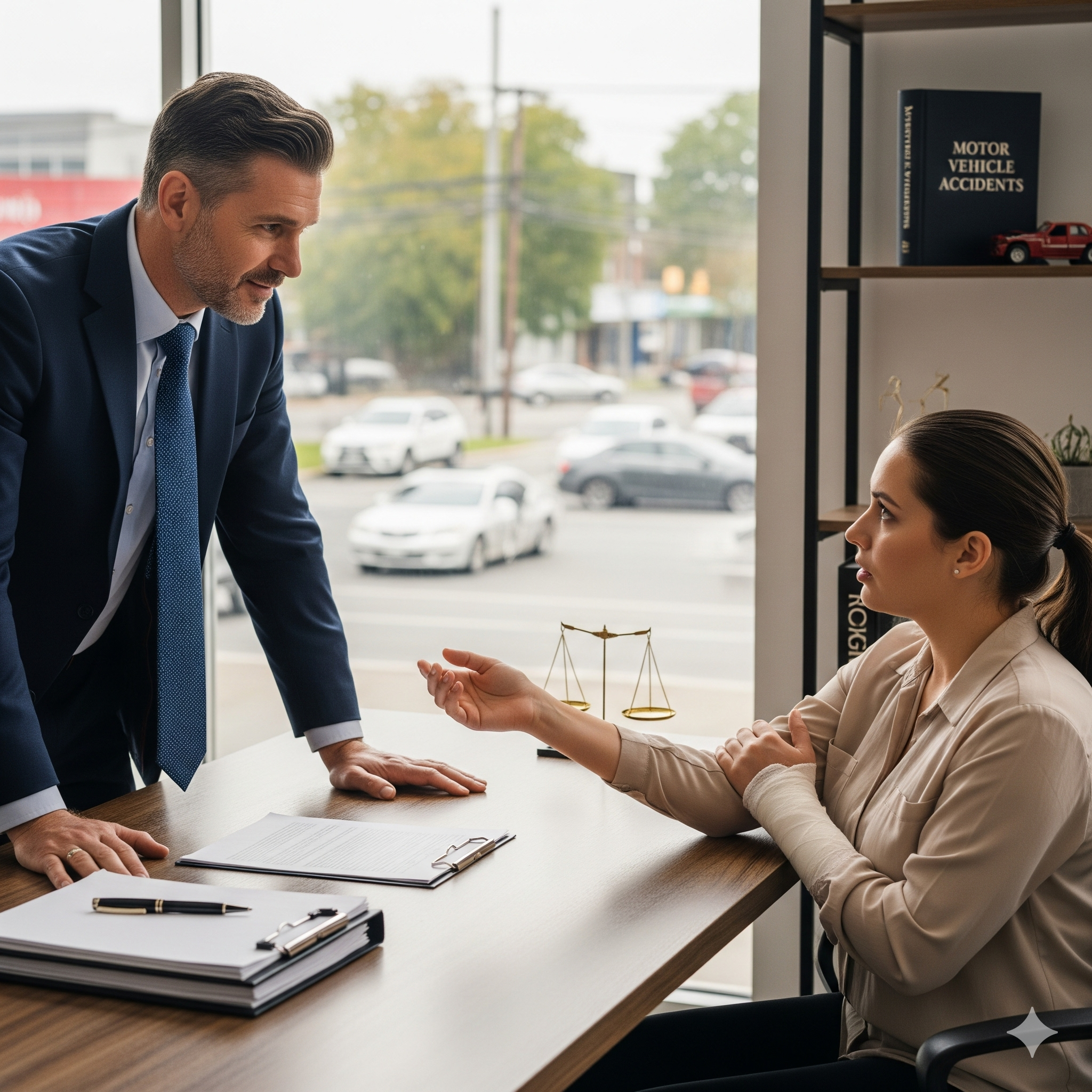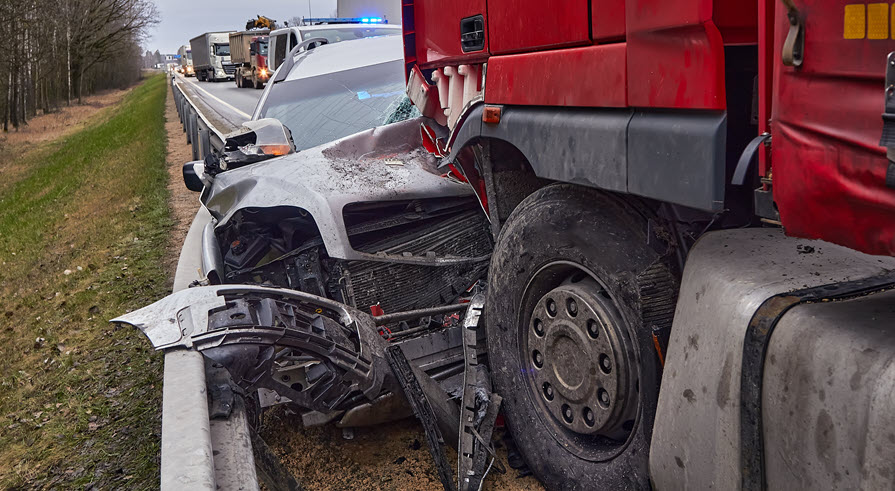Being in a car accident is a jarring experience, both physically and emotionally. In the chaotic aftermath, you’re faced with medical bills, insurance claims, and the stress of recovery. The last thing you want is the added burden of navigating a complex legal system alone. This is where a skilled personal injury attorney becomes your most valuable ally. But with so many options out there, how do you choose the right one? The decision can significantly impact the outcome of your case and your ability to get the compensation you deserve.
This guide will walk you through exactly how to choose a personal injury attorney for car accidents. We’ll cover everything from what to look for in a lawyer to the questions you must ask during your initial consultation. According to the National Highway Traffic Safety Administration (NHTSA), millions of car accidents occur each year in the U.S., many resulting in injuries that require legal action. Making an informed choice about your legal representation is the first and most crucial step toward protecting your rights and securing your future.
Look for Specialization and Experience in Car Accident Cases
Not all lawyers are created equal. Just as you wouldn’t see a foot doctor for a heart problem, you shouldn’t hire a general practice attorney for a car accident claim. Personal injury law, especially concerning vehicle collisions, is a highly specialized field.
Why Specialization Matters
An attorney who focuses exclusively on personal injury and car accident cases will have an in-depth understanding of:
- State-specific traffic laws and “at-fault” vs. “no-fault” insurance systems.
- Common tactics used by insurance companies to devalue or deny claims.
- A network of experts, including accident reconstructionists and medical professionals, who can strengthen your case.
- The nuances of calculating damages, including medical expenses, lost wages, property damage, and pain and suffering.
When vetting a potential lawyer, check their website and professional profiles. Do they highlight car accident cases? Do they have a proven track record of successful verdicts and settlements in this specific area? A lawyer who dedicates their practice to this niche is better equipped to handle the complexities of your claim.
Verify Their Reputation and Read Client Reviews
In today’s digital world, a lawyer’s reputation is more transparent than ever. Before you even pick up the phone, do some online reconnaissance. A firm’s history of client satisfaction speaks volumes about its professionalism, communication, and ability to deliver results.
Start by looking at independent review platforms like Avvo, Martindale-Hubbell, and Google Reviews. Don’t just look at the star rating; read the actual testimonials. Look for recurring themes. Are clients consistently praising the attorney’s communication skills? Do they feel the lawyer fought hard for them? Pay attention to how the firm responds to negative reviews, as this can reveal their level of professionalism.
Additionally, check with your state’s bar association to ensure the attorney is in good standing and has no history of disciplinary actions. The American Bar Association (ABA) provides resources to find your local bar association and verify an attorney’s credentials. A strong reputation built on positive client experiences is a clear indicator of a trustworthy advocate.
Understand the Fee Structure: The Contingency Fee Agreement
One of the biggest concerns for accident victims is the cost of legal representation. Fortunately, most personal injury attorneys work on a contingency fee basis. This is a crucial aspect of how to choose a personal injury attorney for car accidents because it makes justice accessible to everyone, regardless of their financial situation.
How Contingency Fees Work
A contingency fee agreement means:
- You pay no upfront fees. The attorney’s payment is “contingent” upon them winning your case.
- The lawyer’s fee is a percentage of the final settlement or court award. This percentage is agreed upon before they begin working on your case.
- If you don’t win, you don’t owe them a fee for their time.
This arrangement aligns your interests with your attorney’s—they are motivated to secure the highest possible compensation for you. During your consultation, ask for a clear explanation of their fee percentage (it typically ranges from 33% to 40%) and whether it’s calculated before or after case expenses are deducted. A transparent attorney will provide a written agreement detailing all costs and fees.
The Importance of the Free Consultation
The initial consultation is your opportunity to interview a potential attorney and decide if they’re the right fit for you. Most personal injury lawyers offer a free, no-obligation consultation. This meeting is a two-way street: they evaluate the merits of your case, and you evaluate their suitability as your legal counsel.
Questions to Ask a Personal Injury Attorney
Come prepared with a list of questions to make the most of this meeting. Here are some essentials:
- How long have you been practicing personal injury law?
- What percentage of your practice is dedicated to car accident cases like mine?
- Have you handled cases similar to mine before? What were the outcomes?
- Who will be my primary point of contact at the firm? (Will you be dealing with the lead attorney or a junior associate/paralegal?)
- What is your communication policy? How often can I expect updates on my case?
- Based on the information I’ve provided, what is your honest assessment of my case?
- Can you explain your fee structure and provide a copy of the contingency fee agreement?
Pay attention not only to their answers but also to how they make you feel. Do they listen attentively? Do they explain complex legal terms in a way you can understand? You need an advocate who is not only skilled but also someone you trust and feel comfortable with.
Assess Their Willingness to Go to Trial
While the vast majority of personal injury cases are settled out of court, it’s crucial to hire an attorney who is prepared and willing to take your case to trial if necessary. Insurance companies know which lawyers prefer to settle quickly for a lower amount and which ones are formidable opponents in the courtroom.
An experienced trial lawyer has the leverage to negotiate a fairer settlement on your behalf because the insurance company knows they won’t back down from a fight. During your consultation, ask about their trial experience. An attorney who rarely or never goes to court may not have the negotiation power needed to maximize your compensation. A true advocate is ready to fight for you every step of the way, whether at the negotiation table or in front of a jury.
Conclusion: Making the Right Choice for Your Recovery
Choosing the right personal injury attorney after a car accident is a critical decision that can define your road to recovery. By focusing on specialization, verifying their reputation, understanding the contingency fee structure, and using the free consultation to ask the right questions, you can find a legal advocate who will champion your cause. Remember to look for a skilled negotiator who isn’t afraid to go to trial if a fair settlement can’t be reached.
Your primary focus should be on healing. Let a qualified professional handle the legal complexities.
If you or a loved one has been injured in a car accident, don’t wait. Contact a reputable personal injury attorney today for a free consultation to discuss your case and learn about your legal options.
Sources
- National Highway Traffic Safety Administration (NHTSA). (n.d.). Data. https://www.nhtsa.gov/data
- American Bar Association (ABA). (n.d.). How to Find a Lawyer. https://www.americanbar.org/groups/legal_services/flh-home/flh-find-legal-help/
- Cornell Law School Legal Information Institute. (n.d.). Contingency Fee. https://www.law.cornell.edu/wex/contingency_fee




